Dynamic Component as Parametric Design Tool
-
Taekle, excellent examples...I too am intimidated by the math involved, but am now more interested in learning after seeing what you've done here.
@shura said:
why not have a workshop of some sort?
+1

-
Hi mates,I'm also the one who concerns parametric design too
 .Thanks taekle for your very usefull tips.
.Thanks taekle for your very usefull tips.
I'm new to Dynamic Component,this my very first try.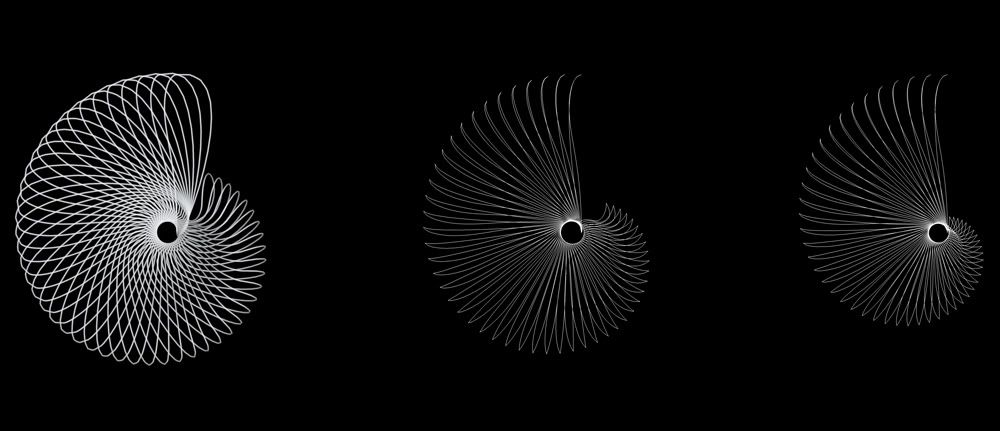
-
Can't say I'm doing anything as exciting as this - but for a bit I was playing with generating timbers and joinery, and also generating tools for compound roof design. Because I need to have the volume of the timber untouched (and in one component) - I'm not modeling the backing cuts or end cuts - but creating guidelines over the volume, and then using marker components to swap out for joinery, that are also dynamic. The wireframe house shape in the beginning of the video is also a dyn component - I can change plate height, pitch(es), etc. I use this when creating gable shapes, then I lock it and use it as a guide for my framing.
This was very preliminary... and used as a proof of concept. If I ever have time I'd get back in and refine these things (or learn Ruby...)
-
@cucsat2003 said:
I'm new to Dynamic Component,this my very first try.
Cucsat2003! You are the first and still only one who uploaded a DC parametric model except me!

Please keep posting your results.Shura, I feel happy that my screenshots were helpful to you.
And the result of 'blend plugin' looks fantastic! It inspires me very much! Thanks.D12dozr, I hope you still keep interesting DC parametric things.
I will post with another DC model(s) ASAP.Please keep concerning everybody!
By the way, how can the workshop be done?
-
 That's awesome, taekle!
That's awesome, taekle! 
Thanks for the detailed explanation, I'm going to go back and read it half a dozen times or so, so that it can soak in... -
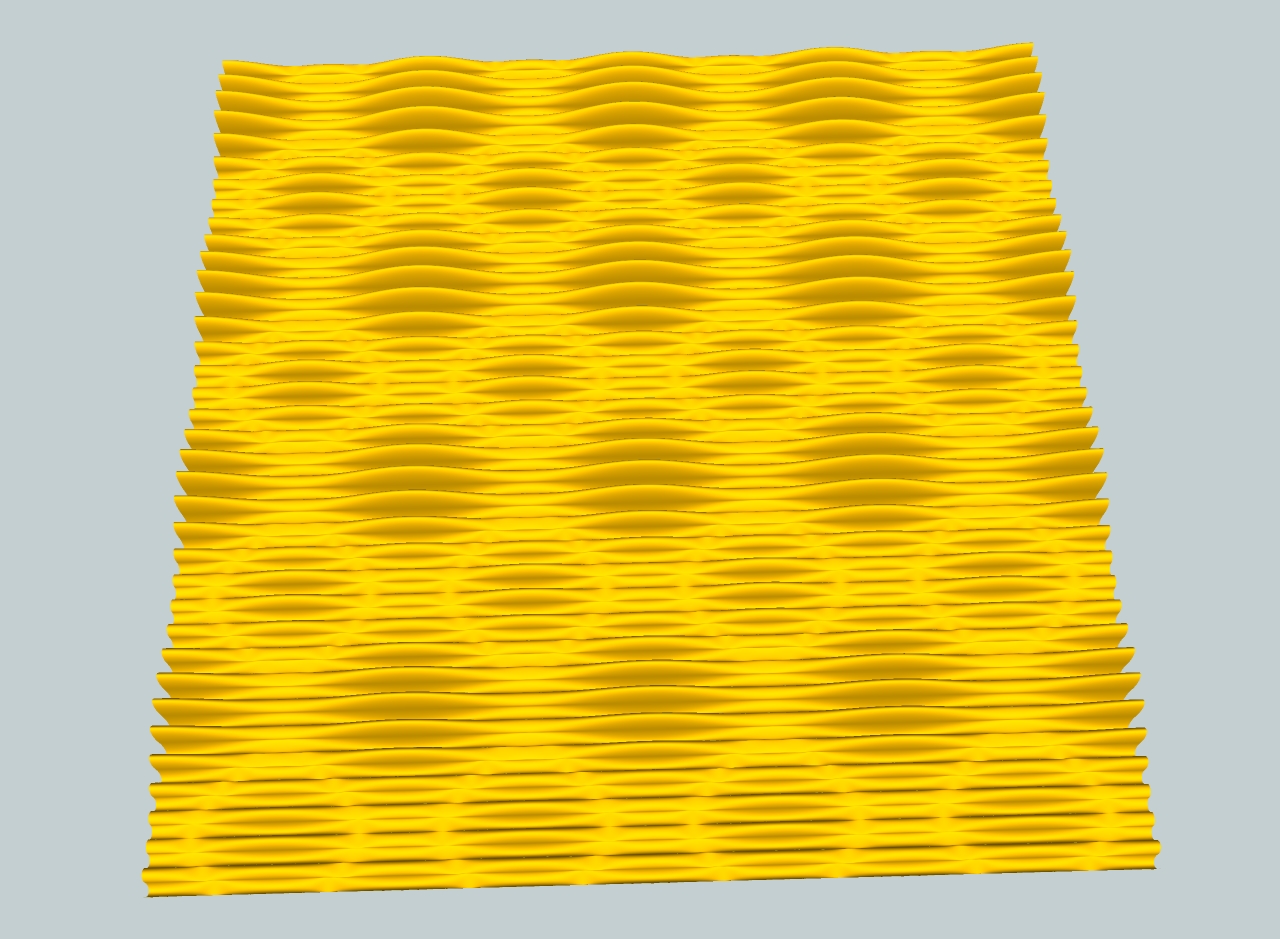
Hi guys, As I said before I've come back with another 2 DC parametric models.
They are very simple comparing with the ones I posted before.
And I am conceiving something different in DC parametric model, I'll also introduce that here someday.Then enjoy DC parametric world again.
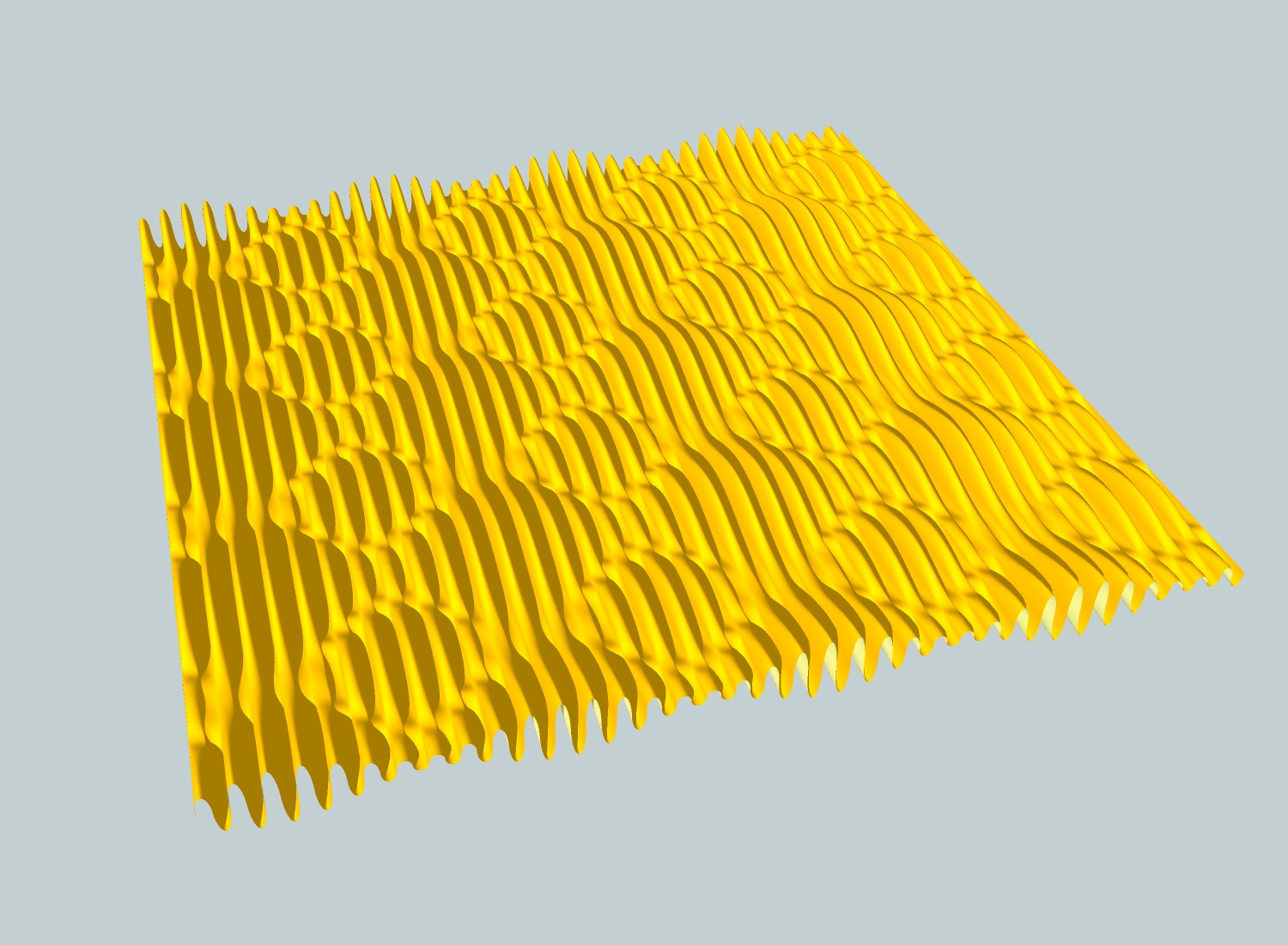
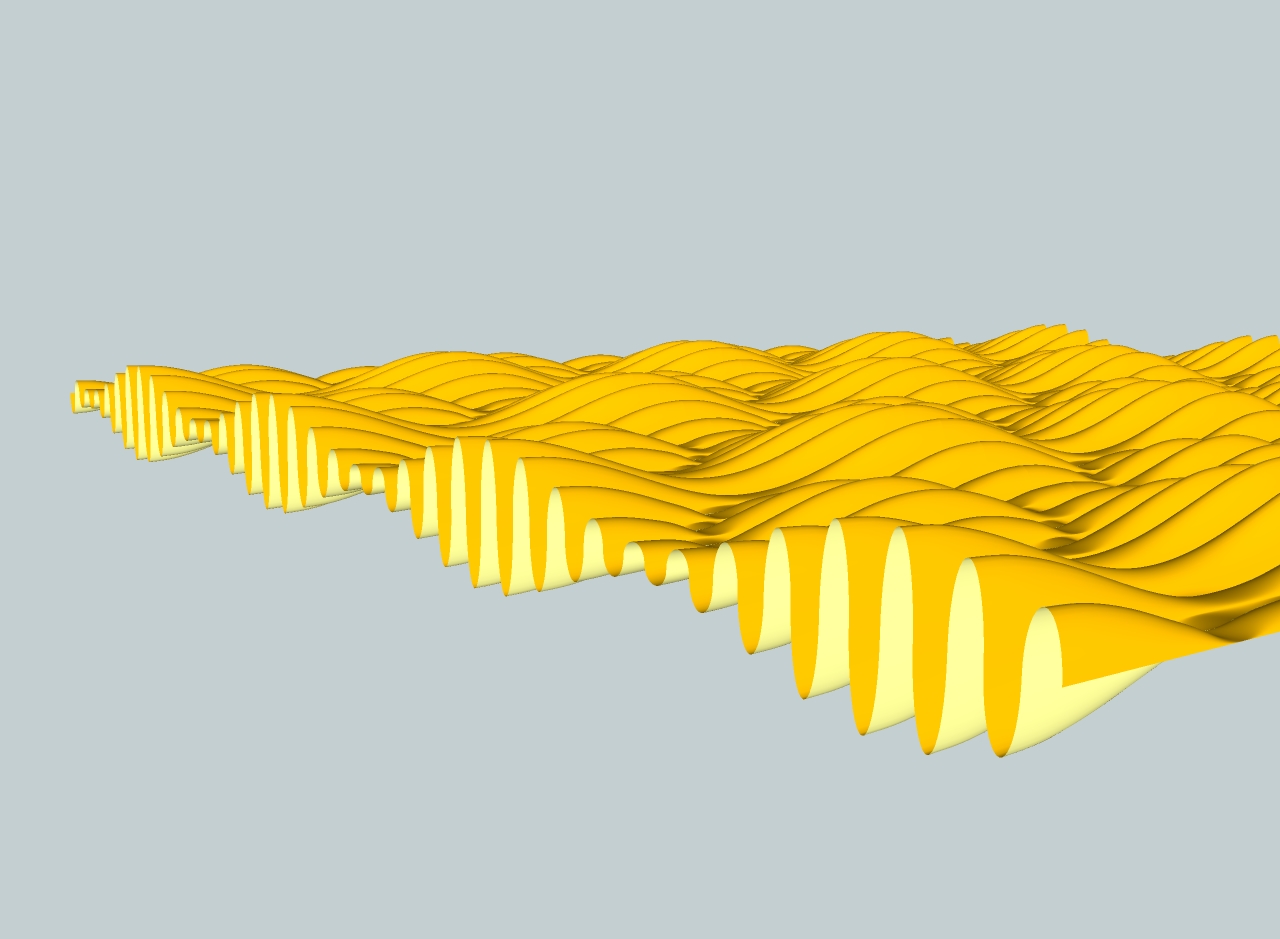
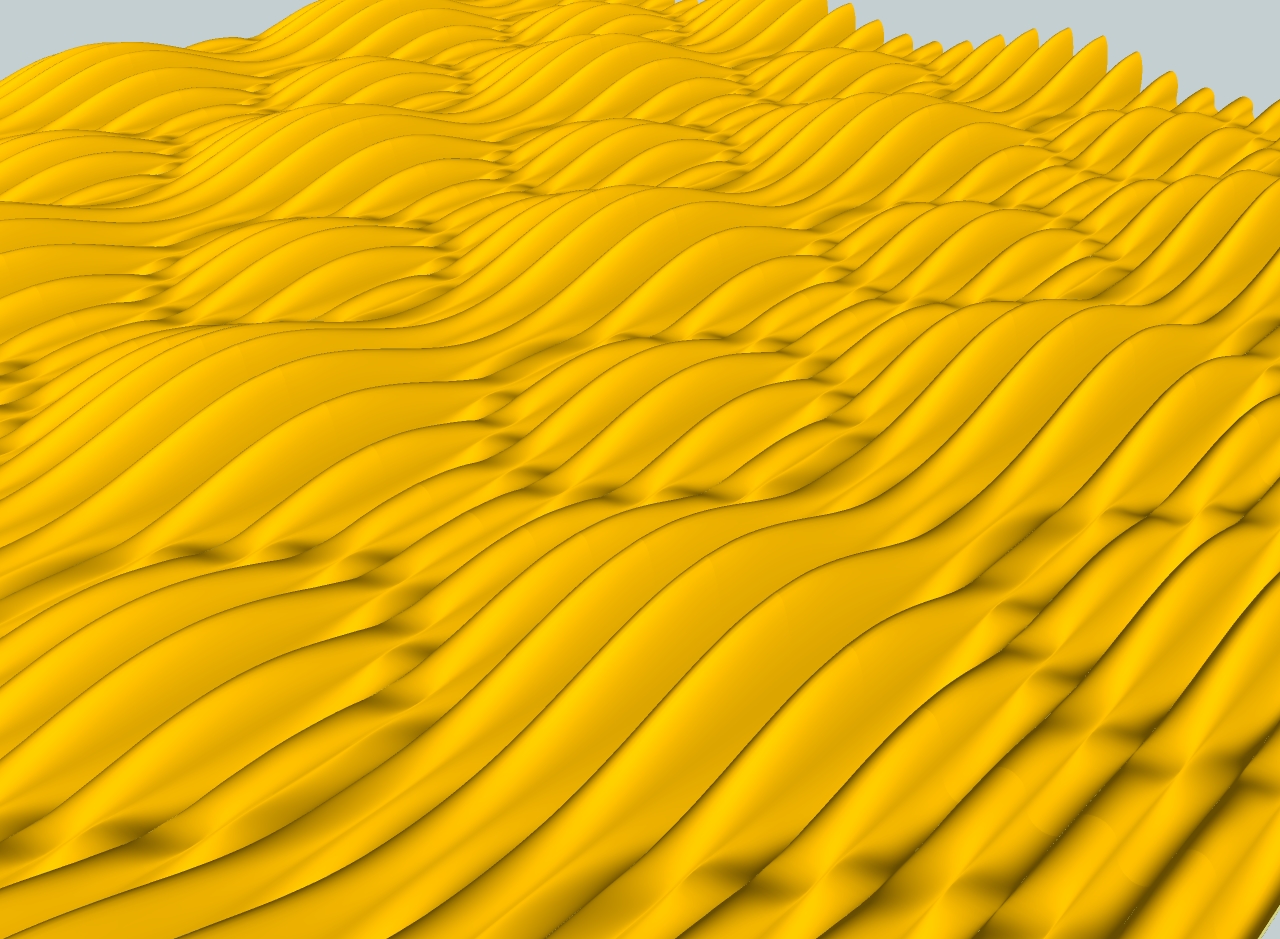
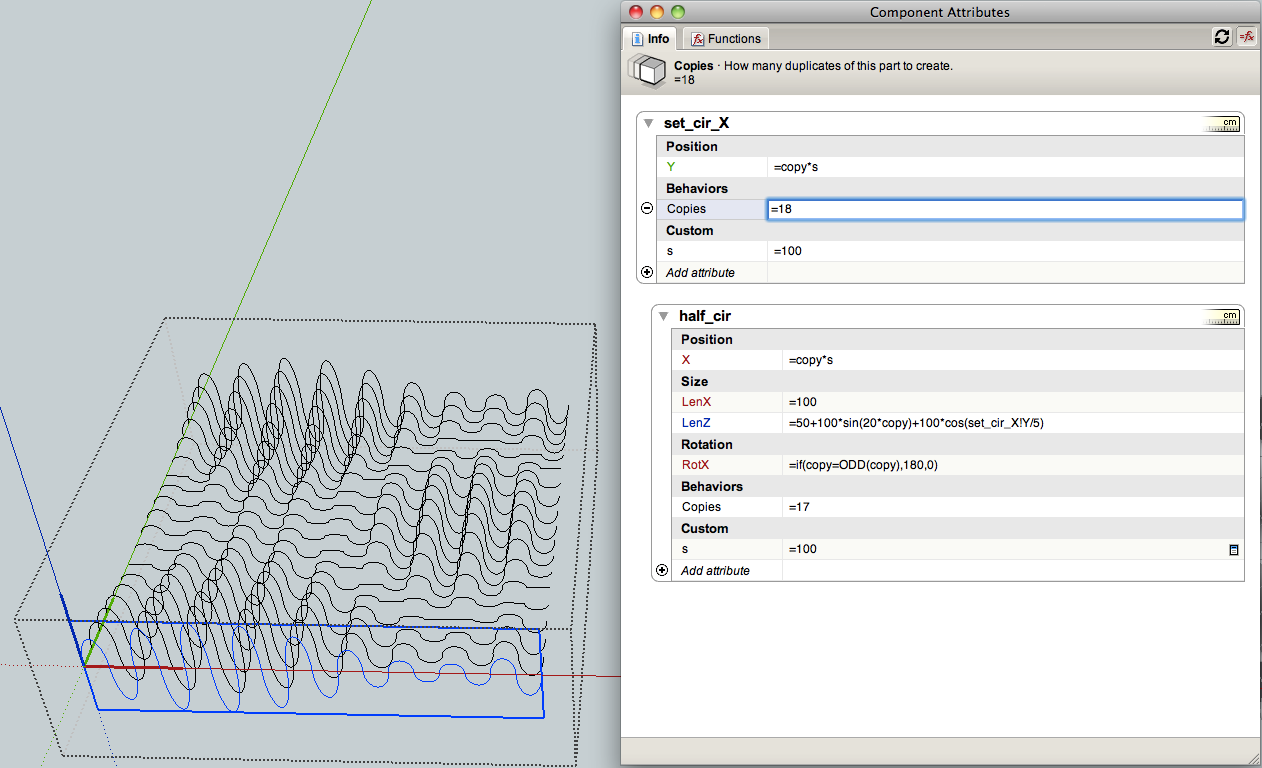
As you see the formula is very simple.
After 'loft by splines' of this set of profiles(I only drew a half circle), then copy 3X3. That's it!.
Try this yourself.I'll give some explanation of the key parts(or steps) of this formula.
- Draw a half circle in any size along with (in this case) red axis('X' axis).
Arc or any other profiles will be also alright. Then make component, in this case 'half_cir' - Set formula to copy in X axis.('s' attribute is set for spacing between these copies.)
- Select these copies and make component, in this case 'set_cir_X'(parent of 'half_cir')
and again set formula to copy in green axis('Y' axis). - In LenZ of 'half_cir', type any formula you want. I like to use 'sin' and 'cos', cause they are periodic.
In this formula you should include 'X' or 'copy' of its own and 'Y' coordinate of 'set_cir_X'(parent).
'Y' coordinate of parent component will make sub-component changing along with 'Y' axis. - In RotX of 'half_cir', type '=if(copy=odd(copy),180,0)'. This will make every two half circles upside down which then looks like wave or pulse.
- After complete every step then copy and move to other place, and explode every component included.
- Do 'loft by splines'
Next one also has regular pattern but a little bit deformed.
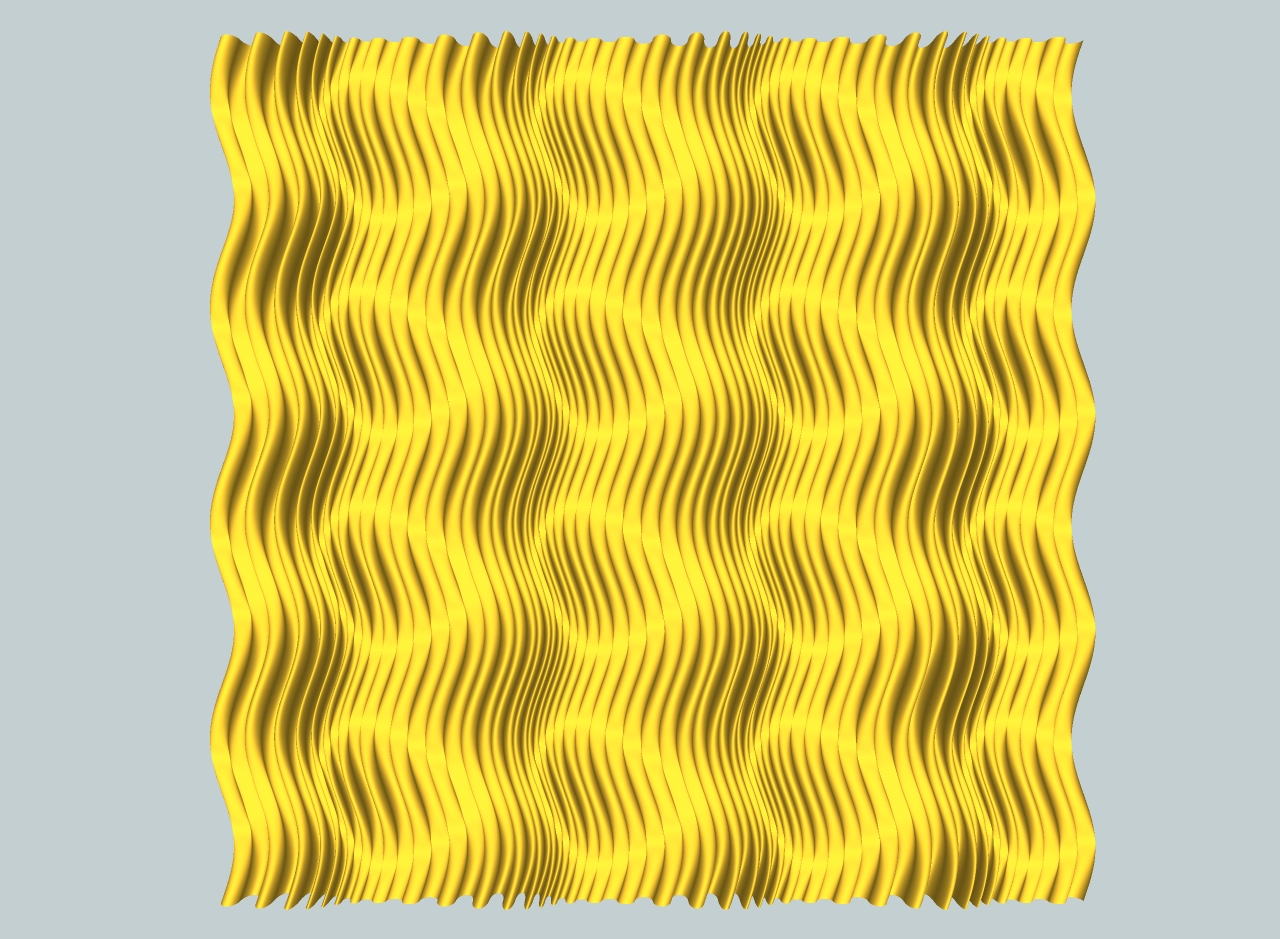
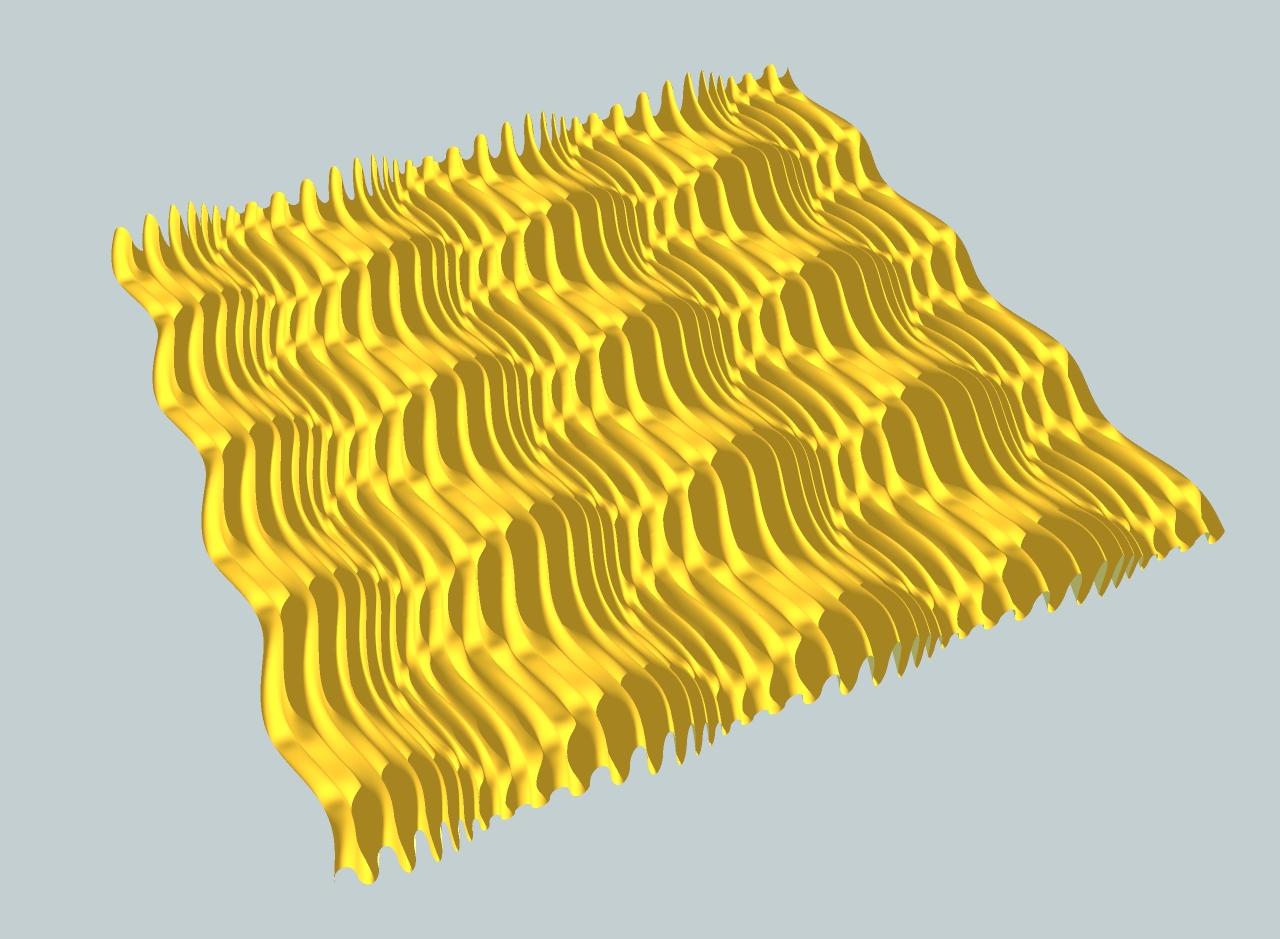
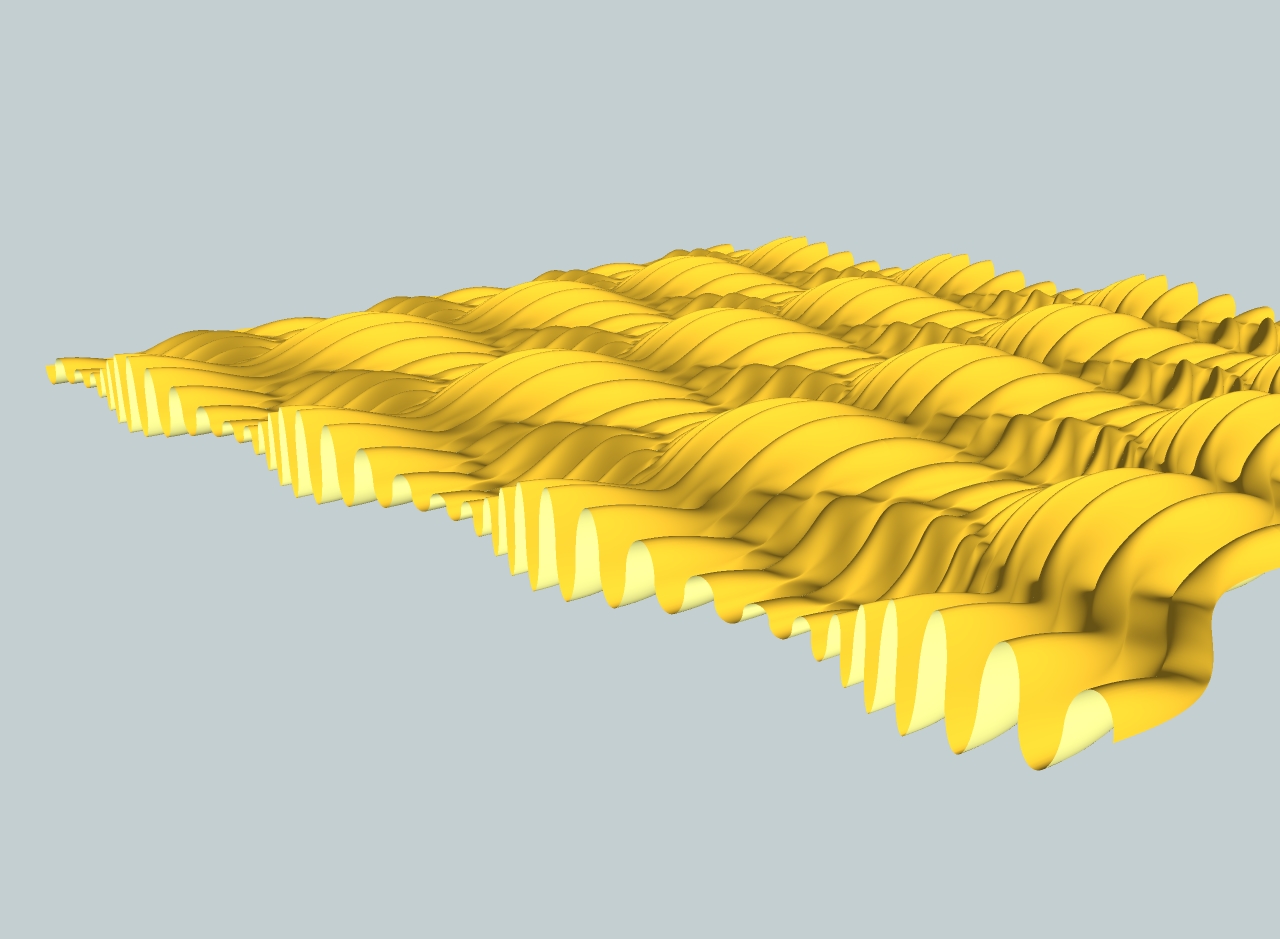
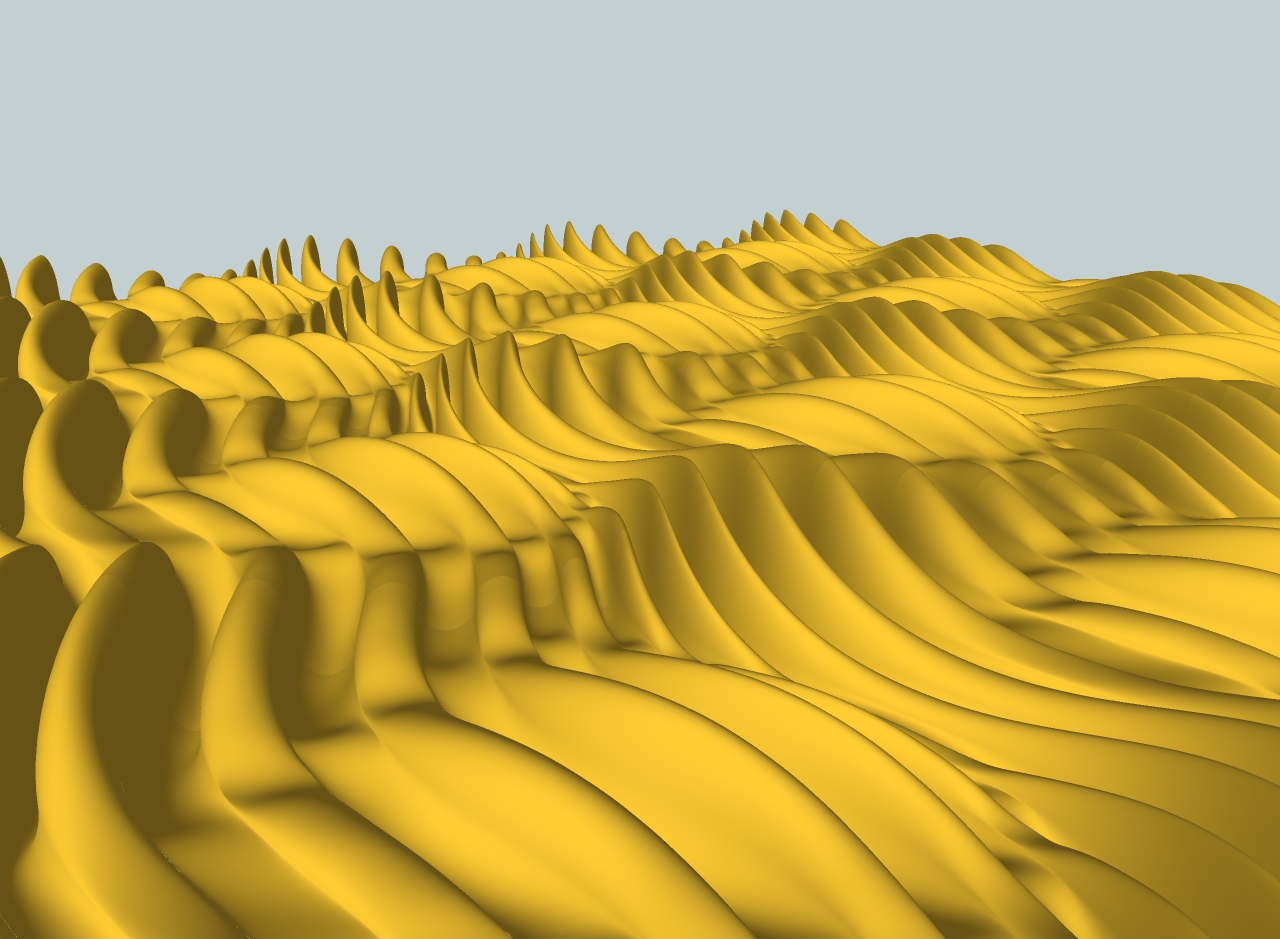
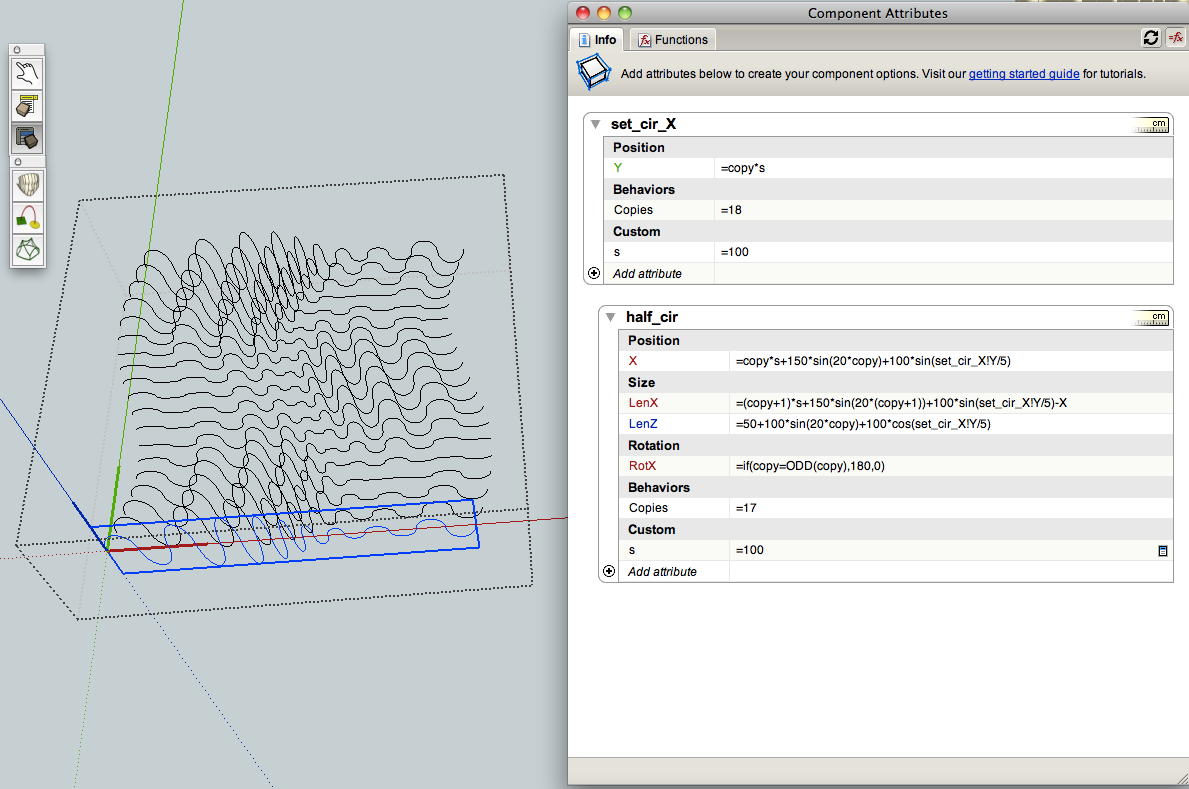
There are two differences to first one.
In this case you should set the 'PosX' of 'half_cir' in formula.
Then set 'LenX' accordance with PosX.
I mean [Nth** LenX] = [(N+1)th PosX] - [Nth PosX]**.
The formula expressed in LenX of 'half_cir' means this.(here 'copy' roles 'N')
Little bit more complex but not that difficult.You can see below a set of profiles, lofted surface and result of 3X3 copy of that.(resulted in 4X4)
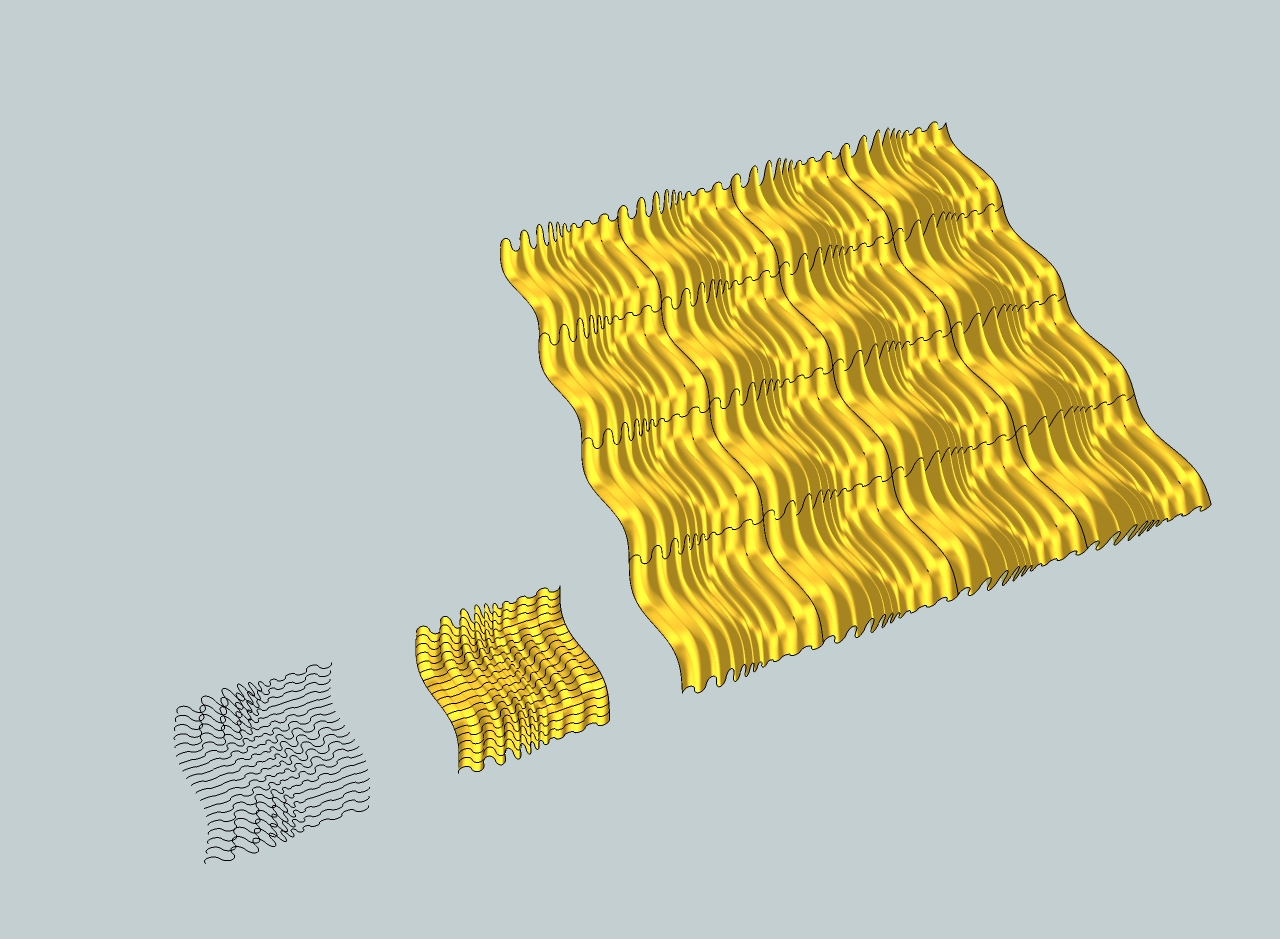
Any one who feels interesting in DC parametric process please try yourself and post your own results here!
I uploaded first one's SKU file on my blog. Visit my blog and find your way.

http://taekle.blogspot.com/2010/11/regular-but-deformed-surface-using.html - Draw a half circle in any size along with (in this case) red axis('X' axis).
-
nice taekle


out of curiosity, will you post a hidden line view of the waves and maybe the model stats (face count, # of edges, etc) ?
thanks[edit] ha, nevermind
 i can get it from your blog i see.
i can get it from your blog i see.[edit-2] actually, i can't get if from your blog. when i click the link, i get this:
*%(#FF0000)[Sorry, the page (or document) you have requested is not available.
Please check the address and try again.]*
-
@unknownuser said:
[edit-2] actually, i can't get if from your blog. when i click the link, i get this:
*%(#FF0000)[Sorry, the page (or document) you have requested is not available.
Please check the address and try again.]*
Jeff Hammond, sorry, I fixed link on my blog, please try again.
(In Google doc's, sometimes, this kind of link error occurs.
They used to say the error is related to multi-login information or something like that)If you still have problem then let me know.
taekle.
-
I just visualized the movement of a simple DC parametric model.
Enjoy this video.[flash=640,505:20olptmb]http://www.youtube.com/v/gzAISi4ZXWA?fs=1&hl=en_GB[/flash:20olptmb]
[flash=640,505:20olptmb]http://www.youtube.com/v/RFbvBJvA8Hk?fs=1&hl=en_GB[/flash:20olptmb] -
Back again, and again holding my breath. I wonder if I ever get my head around DCs.
(did not loose interest, just moved to new appartment and waiting much too long for the internet connection )
)
That last visualization is really great, and thaks for sharing the waves pattern. -
Completly missed this thread! Very cool examples!

Advertisement







